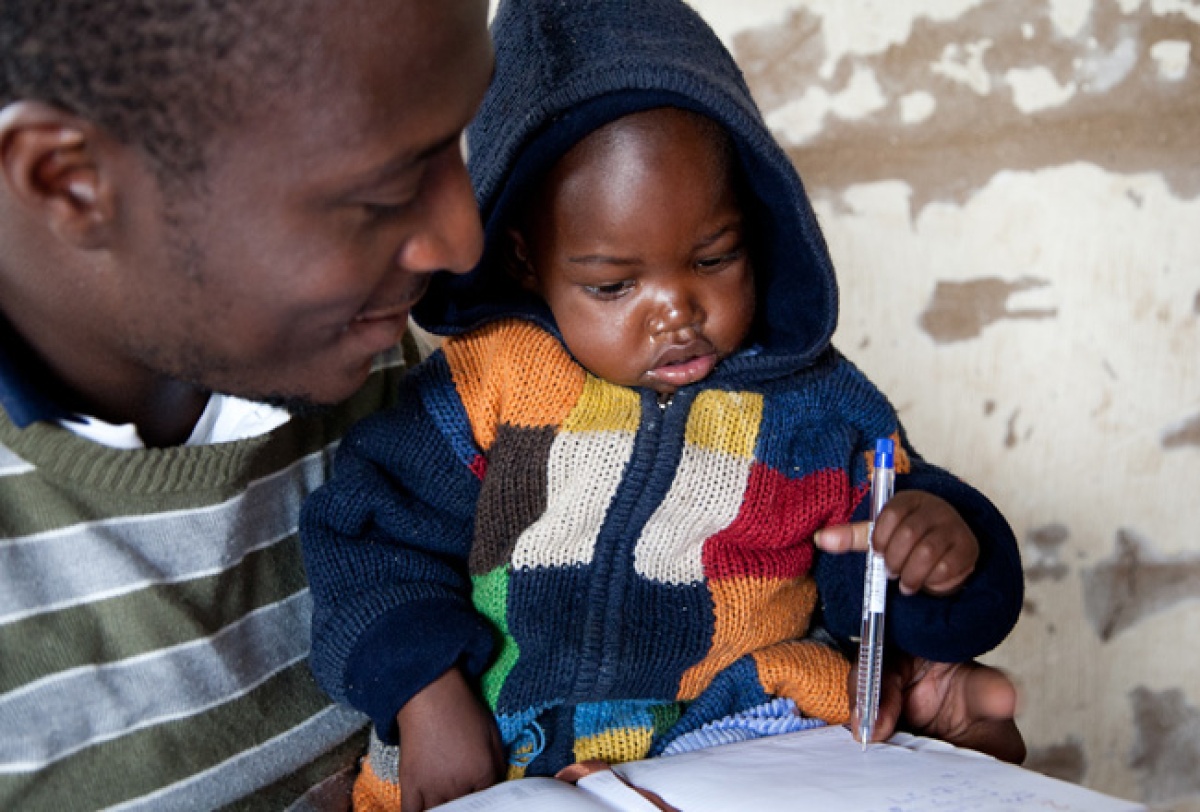From Gaunt to Giggling: Rachel at Age 4
Posted on Nov 26, 2013

This Sunday, December 1, is World AIDS Day. To mark the occasion, Blessing Banda, HIV and nutrition coordinator for PIH’s Malawian sister organization, shared the story of a patient he first encountered two years ago.
A group of young children ran toward the Toyota Land Cruiser. It was late afternoon in Malawi’s Neno District, and the vehicle was approaching a rural homestead that consisted of one house made of iron sheets and three grass-thatched homes.
As I got out of the car I heard a voice say, “Uncle Bule.” I looked down and saw a little girl running toward me. She hugged me. I picked her up and began walking toward the homes. I couldn’t believe it was Rachel. She looked so beautiful, so healthy.
I remember when Rachel was admitted to Neno District Hospital’s Nutrition Rehabilitation Unit. It was November 2011, two years ago this month. Back then, she was 2 years old and gaunt with swollen legs. She looked sad and weak and wouldn’t allow anyone to talk to her. The only thing she wanted was to play with a stuffed sunflower toy we had at the hospital.
Rachel’s mother was nervous when they came to the hospital. The 22-year-old woman, who worked in people’s fields during rainy season to piece together a living, didn’t know what was wrong with her child. We tested Rachel and her mother for HIV. As soon as the test results came back positive, both mother and daughter began taking medications. PIH/APZU counselors met immediately with the mother to provide psychological support.
There are many children in need. We will work collectively to save these precious lives.
But Rachel was also malnourished. She stayed in the Nutrition Rehabilitation Unit for nearly two weeks. Slowly we began to see progress. Still, her mother was confused and anxious when she was instructed to feed Rachel only the therapeutic formulas we provided.
After Rachel was discharged, PIH/APZU staff, including myself, began making home visits. Rachel lives with her mom and grandparents. They’re farmers, and it’s hard for them to earn enough income. Through our Program on Social & Economic Rights (POSER), we were able to help Rachel’s mother enroll in school and provide a small stipend of about 3000 Malawian Kwacha, or about $7. That helped enroll Rachel in preschool at age 3 and cover basic supplies—notebooks, pens, uniforms—for the mother. Others provided support to make sure the extended family was getting care, too.

Rachel at age 2 and her mother, Mphatso. Credit: PIH
Because Rachel and her mother are now connected to the health system, APZU staff continues to accompany them through HIV care and nutrition evaluations.
Seeing Rachel, now 4 years old, run across that field was a powerful reminder of how we can change lives. She looks so much healthier than when we first met. She is charming and loves hide and seek and playing in the fields with other children.
Her mother makes sure they both adhere to their medication. She’s still in school and doing well—she wants to be a nurse to help people from her home village and to help other people in Neno who are facing the same problems she has faced.
When I think of Rachel’s story, I think of how an integrated health system that delivered nutritional care and HIV care helped her. I think of ways we can integrate social care and accompaniment into this system. It is our voice that speaks for those children who cannot speak. It is our hands that touch what they cannot touch. There are many children in need. We will work collectively to save these precious lives.

